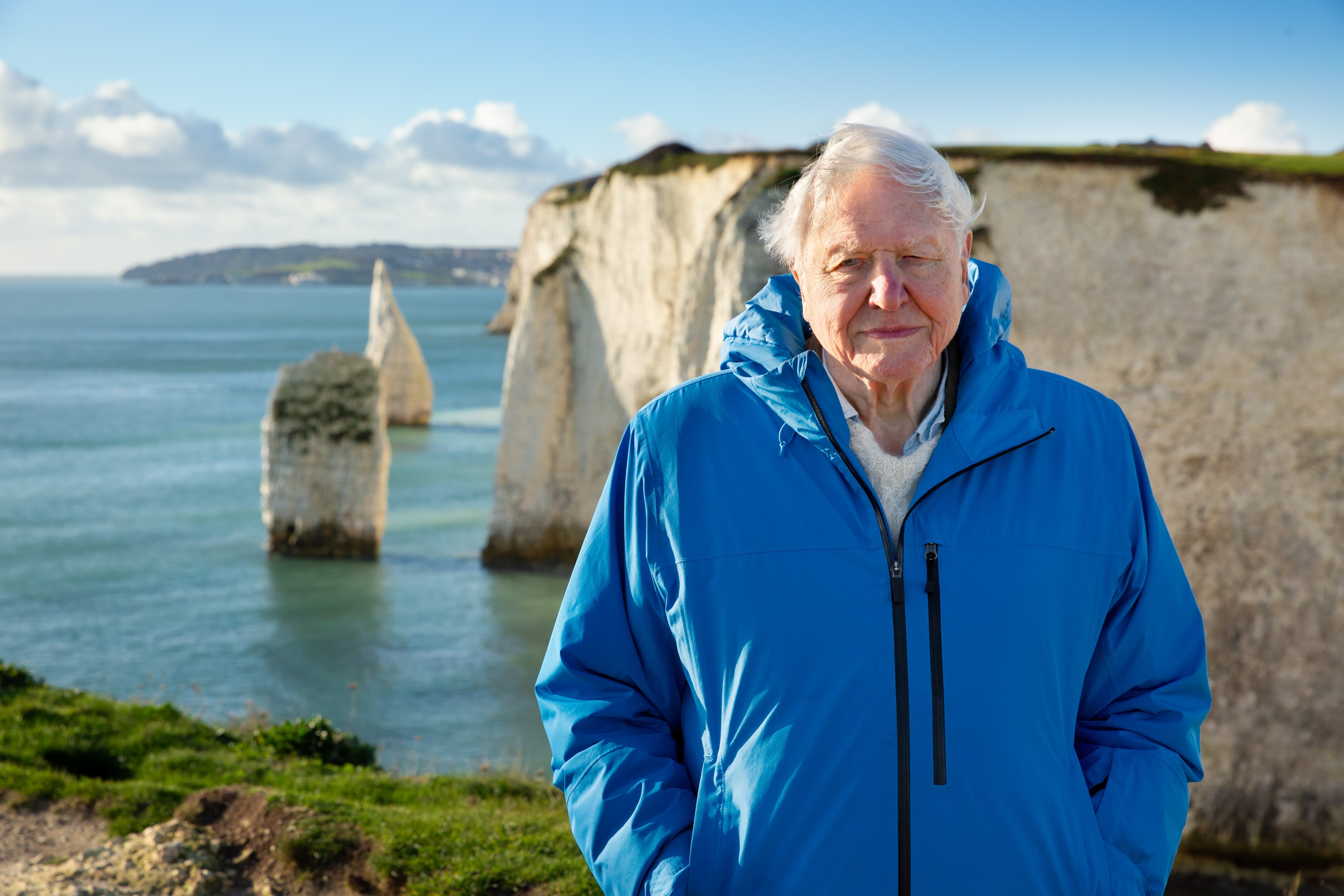Who can – or could – ever replace David Attenborough?
The exceptional nature presenter has had an award-winning career spanning decades. Fiona Sturges explores who could step in when the 99-year-old makes the decision to finally step away from the camera – and if they could ever truly fill his shoes
What comes to mind when you think of David Attenborough? Maybe you picture him sitting amid Rwandan mountain gorillas, grinning as one of them tries to take off his shoes. Or crouching in a colony of fuzzy king penguin chicks as they peer inquisitively into the camera. Or being lunged at by an angry four-tonne elephant seal. In my mind’s eye, he is standing on a mountaintop, declaiming in gale-force winds like Moses in a cagoule.
For successive generations of viewers, Attenborough doesn’t just illuminate the natural world, he is its sole representative. His voice-of-God narration is inimitable and his knowledge irrefutable as he invites us to see the world through new eyes. Remarkably, at 99 years old, he is still working. He can currently be seen in Ocean with David Attenborough, a documentary in which, standing on a deserted beach in Dorset, white hair blowing sideways, he reflects on his century of life, his approaching mortality, and the ocean as “our planet’s life support system and our greatest ally against climate catastrophe”.
That Attenborough is still on our screens feels miraculous, though it surely won’t be long before he steps back. It’s a change that has been on the minds of TV executives for well over a decade. Who, feasibly, could do what he does? In 2014, the head of the BBC’s Natural History Unit, Wendy Darke, remarked that Attenborough was a one-off and would likely be replaced by a team of presenters in the event of his retirement. Among the names thrown around by commentators have been Chris Packham, Brian Cox and Steve Backshall. However, for all their knowledge and familiarity at home, these figures don’t draw overseas audiences. Nor are they likely to persuade streaming platforms such as Netflix or Disney to bankroll big-budget co-productions, a necessity in our current TV climate.
The last 15 or so years have seen a move towards celebrity-narrated nature documentaries, the thinking being that a glittering name should be enough to draw a crowd: think Tilda Swinton voicing the BBC’s Galapagos series or Morgan Freeman accompanying us on March of the Penguins. This year, NBC’s The Americas was narrated by Tom Hanks, who, for all his warmth and likeability, proved a poor Attenborough substitute, going too far with the cosy anthropomorphism. Our Oceans, Netflix’s deep-sea doc released last year, had Barack Obama as narrator. His voice was fluent and soothing, but still unmistakeably that of an ex-president and not a biologist who has spent a lifetime observing the natural world.
Ultimately, this is the trouble with celebrity narrators. There is something inherently odd about a team of experts spending years filming a nature series – and, thanks to Attenborough’s behind-the-scenes segments, we know the painstaking work that goes into them – and then bringing in an outsider, with no connection to the subject, to parrot the script. You only need to watch 2009’s South Pacific, in which narrator Benedict Cumberbatch repeatedly mangles the word “penguins”, pronouncing it “pengwings”, to see how a hired voice can come unstuck.

But the question of what happens once Attenborough hangs up his binoculars is about more than good TV. The great conservationist is now one of the most urgent and listened-to voices on the climate crisis. It may have taken until the 2010s for him to deliver warnings about shrinking ice caps, warming oceans and the cost of human overconsumption – his justification for his silence was that he wanted to inspire rather than alarm – but now, in his dotage, he doesn’t mince his words. In Ocean, much of his ire is directed at the fishing industry and the practice of bottom trawling, in which iron-weighted nets are dragged along the seabed. Bottom trawling not only captures and kills every creature in its path (three-quarters of what is caught is thrown away) but it also causes immense damage to marine ecosystems. “We have drained the life from our ocean. Now we are almost out of time,” Attenborough warns.
The truth is, no one can replace the man who, in his twilight years, is not only the voice of the natural world but our moral conscience. There is a reason why Attenborough was voted the most popular person in the UK in a YouGov poll, and why he has at least 50 animal and plant species named after him, among them a spider, a grasshopper and an extinct aquatic reptile called Attenborosaurus. It was with clear disquiet last year that the BBC reported the existence of vocal replicas of Attenborough thanks to AI software. Proof that nothing is sacred.
The best we can do is cherish the real Attenborough while we have him, to honour his pleas and demand change for our planet. Before it’s too late.
‘Ocean with David Attenborough’ is in cinemas now and on Disney+ and National Geographic from 8 June
Join our commenting forum
Join thought-provoking conversations, follow other Independent readers and see their replies
Comments